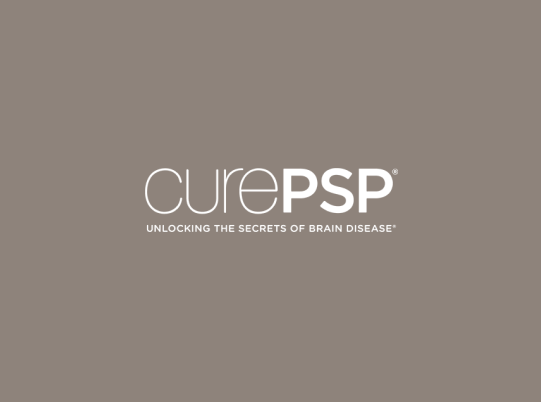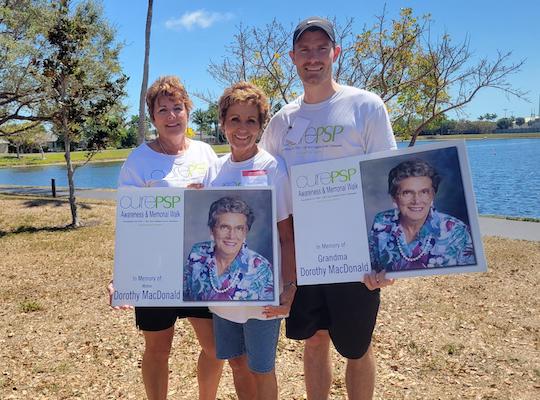Types of Care and Care Facilities
Jul 20, 2018 By Lucas Metherall
This article was written by CurePSP contributor and volunteer, Diane B. Breslow, MSW, LCSW.
What follows is an overview of the spectrum of care and care facilities for adults with physical impairments or chronic disease. All of the levels discussed are potentially appropriate for people with PSP and related diseases. That said, it is extremely important, and acceptable, for family caregivers to inquire as to a staff’s experience with prime of life neurodegenerative disorders like PSP. Family members can and should make providers aware of the symptoms and needs of these patients, and offer to ascertain educational materials, speakers, and in-service training for staffs.
Adult Day Programs
Older-Adult Day Programs (also referred to as Adult Day Care Centers) are community-based, day-long social and recreational programs provided in a safe, secure group setting. Participants typically exhibit cognitive, social, and/or functional limitations, and therefore require the supervision and structure that Adult Day Programs provide. Most programs also offer some health-related services, such as medication reminders. Other features of Adult Day Programs include:
- Transportation
- Lunch and snack
- Assistance with, or supervision of, eating, walking, toileting
- Exercise
- Socialization and peer support
- Social work services
- On-site or on-call nurse.
In addition to the benefits to participants, Adult Day Programs afford family caregivers a respite from the demands of full-time caregiving for someone who needs constant supervision.
Services and fees for Adult Day vary from program to program, and state-to-state.
Rehabilitation
Even with a neurodegenerative disorder such as PSP, rehabilitation therapies can offer helpful safety instructions and can help to re-stabilize an individual’s functioning. The skilled rehabilitation therapies of Physical Therapy, Occupational Therapy, and Speech Therapy are provided in multiple different settings: Day Treatment Centers, one’s home, in-patient units of rehabilitation institutions, and out-patient centers. Skilled therapy is an order prescribed by a physician; in the case of PSP, either the movement disorders neurologist or physiatrist (rehabilitation physician) would write the order. Therapy is covered by Medicare and other health insurance companies, so long as the person is not already receiving insurance-covered therapies in more than one setting at the same time.
In-Patient Rehabilitation
Large, dedicated rehabilitation institutions offer in-patient rehab stays as well as all other levels of rehab treatment. To qualify for an in-patient rehab unit, one must meet specific criteria related to the ability to participate in and benefit from daily, intensive, multiple therapy sessions.
Day Rehabilitation Programs
In addition to offering in-patient and out-patient rehabilitation, some rehabilitation institutions also offer Day Rehabilitation: a concentrated, rather intense community-based day-long treatment program that encompasses all of the skilled rehabilitation therapies: Occupational Therapy, Physical Therapy, and Speech Therapy. To qualify, a patient must be able to undertake 3 hours of therapies each day.
Out-Patient Therapy
Out-patient therapy is provided in a community clinic setting. Therefore, the patient must be able to leave the home for therapy. Unlike Day Rehabilitation, Out-patient Therapy consists of one-hour sessions of physical, speech, or occupational therapy.
In-Home Therapy
In-home therapy refers to physician-ordered, skilled, rehabilitation therapy—speech, physical, or occupational—for patients who are home-bound and unable to travel to an out-patient therapy setting. A Registered Nurse opens and oversees the home rehabilitation care. During the time that a case is open for home rehab, the patient is also eligible to receive a bath aide. However, once the course of rehabilitation ends, so too does the bath service.
In-Home Care
In-home care refers to personal care with activities of daily living, such as bathing, grooming, and dressing. In-home care providers are also called companions, personal aides, or personal caregivers. They work either for themselves privately, or for an agency that takes responsibility for setting fees, making caregiving assignments, insuring and bonding the caregivers, and training them. In-home caregivers can be employed by task, e.g. bathing assistance, or by blocks of time, e.g. 4 hours or 8 hours, or even live-in. For the most part, personal care is a private expense. Medicare or health insurance does not cover it; however, it may be covered by one’s long-term care insurance policy. During the time someone is receiving Medicare-reimbursed home therapy, (s)he is entitled to an aide for bathing. Most states, through their local Area Agencies on Aging, offer a capped number of hours of companion services to older adults.
Long-Term Care Facilities
Long-term care facilities are on a spectrum from most-to-least independent living.
Independent Living
Independent Living is a broad term that encompasses Senior Apartments, Active Communities, and Retirement Homes. These types of buildings are not licensed to provide personal care or nursing services, although residents can and do contract for private duty care just as they would in their own home or apartment (See In-Home Care above). All of these more independent facilities offer amenities such as 24-hour security, transportation, and activity programs. Whereas senior apartments and active communities may not serve meals in a central dining room, retirement homes usually do have group dining.
Assisted Living
Assisted Living refers to an entire building, or a specified part of a building, that is licensed to provide personal care 24 hours/day. However, the license – and its definition of care – can differ from state-to-state. Assisted Living is the fastest-growing type of residential care with the most discrepancy in definition. It is very important for prospective residents to ask very specific questions as to the type of care – and caregivers – offered in a particular building. In general, assisted living caregivers are trained, certified aides who assist with daily tasks, for example bathing, dressing, escort to meals, medication set-up and dispensing, routine checks on residents. The role of registered nurse may vary. At the least, the RN should be the one who sets up and stores a person’s medications. The aide may be the person who delivers the medicines to the resident. Even the word “delivers” the medication may vary. “Deliver” could mean: to drop off the medication in the person’s room; to hand it to the resident; to administer it to the person. Assisted Living provides housekeeping and social programs, as well as transportation to and from medical appointments, errands, and group outings. Some facilities may offer rehabilitation therapies, hospice care, and specialized care for different disorders. If the facility offers rehab or hospice, the same rules for physician referral, evaluation, coverage, etc. apply as when one is living at home.
Continuing Care Retirement Communities
Continuing Care Retirement Communities (CCRCs) are residential, gate-secured campuses that, with a substantial entrance fee, guarantee lifelong care beginning with independent living (cottages or apartments) and progressing on to assisted living and then skilled (nursing home) care.
Nursing Homes
Nursing homes are institutions that are licensed and regulated by state and federal governments to provide skilled care twenty-four hours a day. Registered Nurses are on-duty round-the-clock, as are certified nurses’ aides. Physicians serve as medical directors of skilled care facilities. Everything from activities to nutrition, personal care, environmental safety, staff-to-resident ratios, etc. must meet state and federal guidelines. Within a nursing home facility, there are also levels of care. Some residents require only “custodial care,” or personal care with their activities of daily living such as bathing, dressing, or toileting. Other residents require the services of a nurse for the skilled care of wounds, intravenous medications or feedings, or managing of machinery such as respirator or ventilator. Medicare and supplemental insurance policies cover 100 days of nursing home care that results from a hospitalization and meets the criteria for rehabilitation therapies. After the rehab portion of the stay, residents pay privately and/or by means of their long-term care insurance.
Hospice Or Palliative Care
Palliative or hospice care is compassionate, supportive, interdisciplinary end-of-life care for patient and family. Such care can occur in one’s home, in a long-term care facility (nursing home), in an in-patient hospital unit, or in a free-standing dedicated hospice building. In order to receive hospice care, one must have a physician’s order, followed by an evaluation by the hospice nurse or doctor. Hospice care is covered by Medicare.
Vial Of Life
No matter where your loved ones live or participate in programs such as those described here, they should always keep with them, or in a specified location in their living space, a “Vial of Life.” This paper, which some people roll up and keep in a bottle in their refrigerator – hence “Vial of Life” – should contain the following information:
- Date updated
- Name, Address, Phone Number
- Medications/Dosages/Frequency or Times
- Drug Allergies
- Medical Conditions
- Surgeries (including Year)
- Blood Type
- Power of Attorney for Healthcare
- 2 Emergency Contacts
Because information can change, you should regularly review and update the Vial of Life.
Helpful Resources
Area Agencies on Aging: www.aoa.gov
Eldercare Locator: 800-677-1116
Medicare: 1-800-633-4227 (1-800-MEDICARE) www.medicare.gov
www.medicarte.gov/nursinghomecompare
(Obtain the official government handbook Medicare & You, Centers for Medicare and Medicaid Services (CMS) Publication from U. S. Department of Health and Human Services Centers for Medicare and Medicaid Services – 7500 Security Boulevard -Baltimore, Maryland 21244-1850)
National Association of Professional Geriatric Care Managers: 520-881-8008
Social Security Administration: 1-800-772-1213 www.ssa.gov
Veteran’s Administration Helpline: 1-800-827-1000 www.va.gov
Caregiver Associations:
Family Caregiver Alliance: www.caregiver.org
National Alliance for Caregiving: 301-718-8444 www.caregiving.org
National Family Caregivers Assoc: 1-800-896-3650 www.nfcacares.org
Join our email list
Get the latest news and resources
directly to your inbox.
Get the latest news and resources directly to your inbox.
Sign Up

.png)
.jpg)
